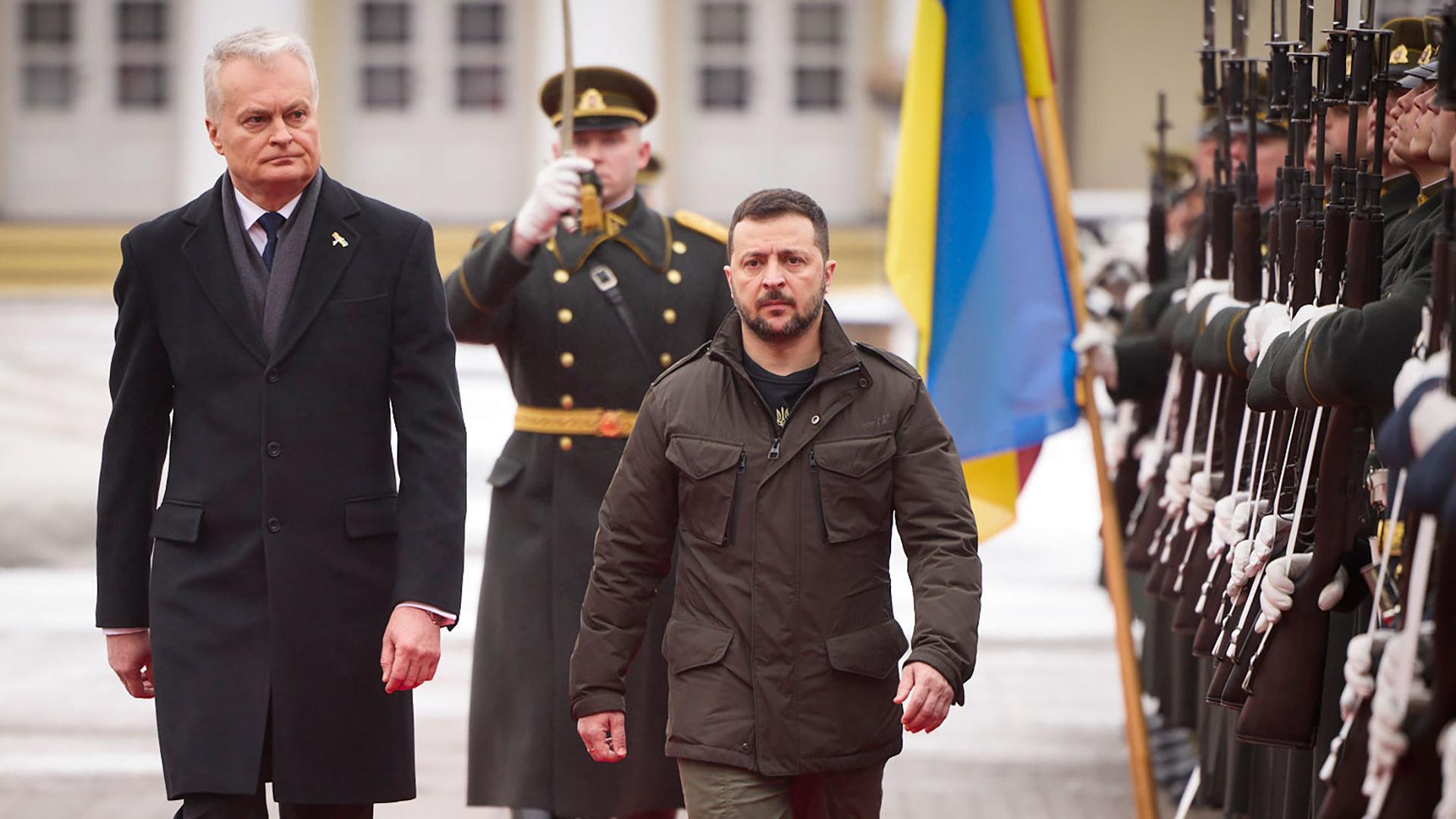Ukrainian President Volodmyr Zelenskiy’s visit to the Baltics was a whirlwind.
In just two days, he met with presidents, prime ministers and members of parliament.
Zelenskiy’s first stop was Vilnius, the Lithuanian capital, where hundreds of people gathered to hear his speech. He made the case for robust European support for Ukraine, and warned against Russia’s future goals.
He warned that Russia wants to continue its war in Ukraine and that if his country does not get the support it needs, the Baltics could be their next target.
After traveling to Tallinn, where he delivered a speech before the Estonian parliament, Zelenskiy shuttled over to Riga, Latvia — the last stop on his diplomatic tour.
During the press conference, Latvian President Edgars Rinkēvičs said that there needs to be a “change in emphasis” when talking about Ukraine.
He said the message from many countries is that they’ll support Ukraine “for as long as needed.”
But Rinkēvičs declared, “We will support Ukraine until its full victory over Russian imperialism.”
A big part of that is providing more military and financial aid.
“It is clear that the Baltic remains among the staunchest supporters of Ukraine in this very complicated situation,” said Marija Golubeva, head of the think tank Baltic Initiative on European Reform.
She said that Zelenskiy’s choice to visit the Baltic countries as his first diplomatic trip of 2024 is politically significant.
“One of the positive sides of visiting the Baltics for him, is that unlike in some other places in the West, now, where there are internal troubles leading to less unequivocal support, especially military aid, the Baltics are the ones who say, military support, yes, full time, whatever we can do for you,” she said.
And Golubeva said that all three Baltic states back their words with action.
Latvia, Estonia and Lithuania are all in the top five countries supportive of Ukraine — based on the percent of their gross domestic products that they contribute — according to the Germany-based Kiel Institute.
When it comes to total financial support, however, the US has contributed more than any other country.
“Sometimes, the message, in a way, is more important than the actual material contribution because people have a sense of reality about what a Russian occupation means, a sense of reality what any kind of occupation by a nondemocratic country actually means,” Golubeva said.
She added that the Baltic states feel vulnerable in the face of Russian aggression.
All three countries combined only have a population of about 6 million people, and they all share borders with Russia.
They also share a common history of being occupied for decades by the Soviet Union.
“The sense of immediacy of having in your family history people who have been deported or killed. Even to the younger generation, who have not experienced any of that themselves, it still imparts some kind of knowledge that you understand that that’s not something you would want to repeat. I think that is a factor in the way the Baltic states see themselves as supporters of Ukraine,” Golubeva said.
She added that the Baltic states have at times rallied other EU countries to contribute more aid to Ukraine.
During his trip, Zelenskiy said that an area of strong need for Ukraine is air defense since Russia has intensified its bombardment in recent weeks.
Zelenskiy hopes that the strong support in the Baltics will create momentum for 2024 in the US and throughout Europe.
Our coverage reaches millions each week, but only a small fraction of listeners contribute to sustain our program. We still need 224 more people to donate $100 or $10/monthly to unlock our $67,000 match. Will you help us get there today?
